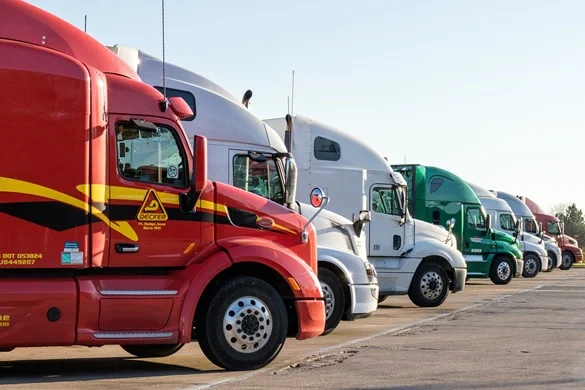Trucks used to be all about horsepower, but due to recent technological advancements, engineers and manufacturers have made leaps to make trucks smarter and cleaner, prioritizing safety and sustainability.
In today’s article, we’ll have a look at how these advancements shape the future of transportation tech in trucking. We’ll explore trends boosting efficiency and safety across the board, offering insights you can’t afford to miss if you’re in the industry.
1. Advanced Telematics and Fleet Management Solutions
Advanced telematics is a game-changer for fleet management. These systems deliver real-time data on vehicle performance, driver behavior, and fuel usage. With this information at your fingertips, you can make informed decisions that optimize operations.
Additionally, telematics allows you to analyze routes for efficiency and suggest changes that cut down unnecessary expenses. Emerging solutions even use AI to predict mechanical failures before they happen based on data trends.
Driver safety has improved as well. Telematics monitors speeding or harsh braking events, allowing you to provide targeted training where needed. Think of it as having a co-pilot who never sleeps.
Moreover, integrated platforms help with compliance by automating hours-of-service logs and maintenance reminders, ensuring your fleet stays roadworthy without manual oversight.
Due to these systems, fleet managers and trucking companies can have a proactive approach that reduces downtime significantly compared to traditional reactive methods.
2. Improved Reliability and Safety Measures
Modern trucks, like the Peterbilt 579 from Charter Trucks and similar models, show greater reliability and implement better driver safety measures than their predecessors.
This is due to technologically-powered improvements, like:
- Better engines that offer better fuel efficiency and longevity reducing breakdowns.
- Modern manufacturing processes use precision robotics and strict quality control measures.
- Enhanced design integration that reduces friction between moving parts, leading to less mechanical stress over time.
- Collision mitigation systems that use radar and cameras to detect obstacles ahead, automatically applying brakes if necessary to prevent or reduce the impact of collisions.
- Cameras that track lane markings and alert drivers when they unintentionally drift out of their lanes, helping prevent side-swipe accidents.
- Adaptive cruise control that maintains a safe following distance by adjusting speed based on traffic conditions (great for long highway hauls).
- Advanced driver assistance systems that combine multiple technologies like adaptive headlights and automated parking assist.
All these systems and others make driving a truck and maintaining an entire fleet much easier, making it essential to consider investing in reliable Peterbilt 579 trucks for sale that are designed to last under a wide range of rough conditions and carry your business for years to come.
3. The Electrification of Heavy-Duty Vehicles
Electric trucks gain momentum with significant advancements as the world pushes for cleaner energy and fewer heavy-duty gas-powered vehicles in cities.
Nowadays, companies like Tesla and Daimler are leading the charge by developing robust electric models capable of handling substantial loads without compromising performance. Governments sweeten the deal with incentives for adopting green tech, making this transition financially appealing.
Besides the environmental aspect, the main advantage is that electric motors have fewer moving parts than internal combustion engines. That means less wear and tear, so lower maintenance and parts costs.
Wrap Up
Driven by technology, the trucking industry is evolving rapidly. From electric engines to advanced telematics, these innovations transform operations and safety, heralding a new era of efficiency and sustainability.
For more information click here.









